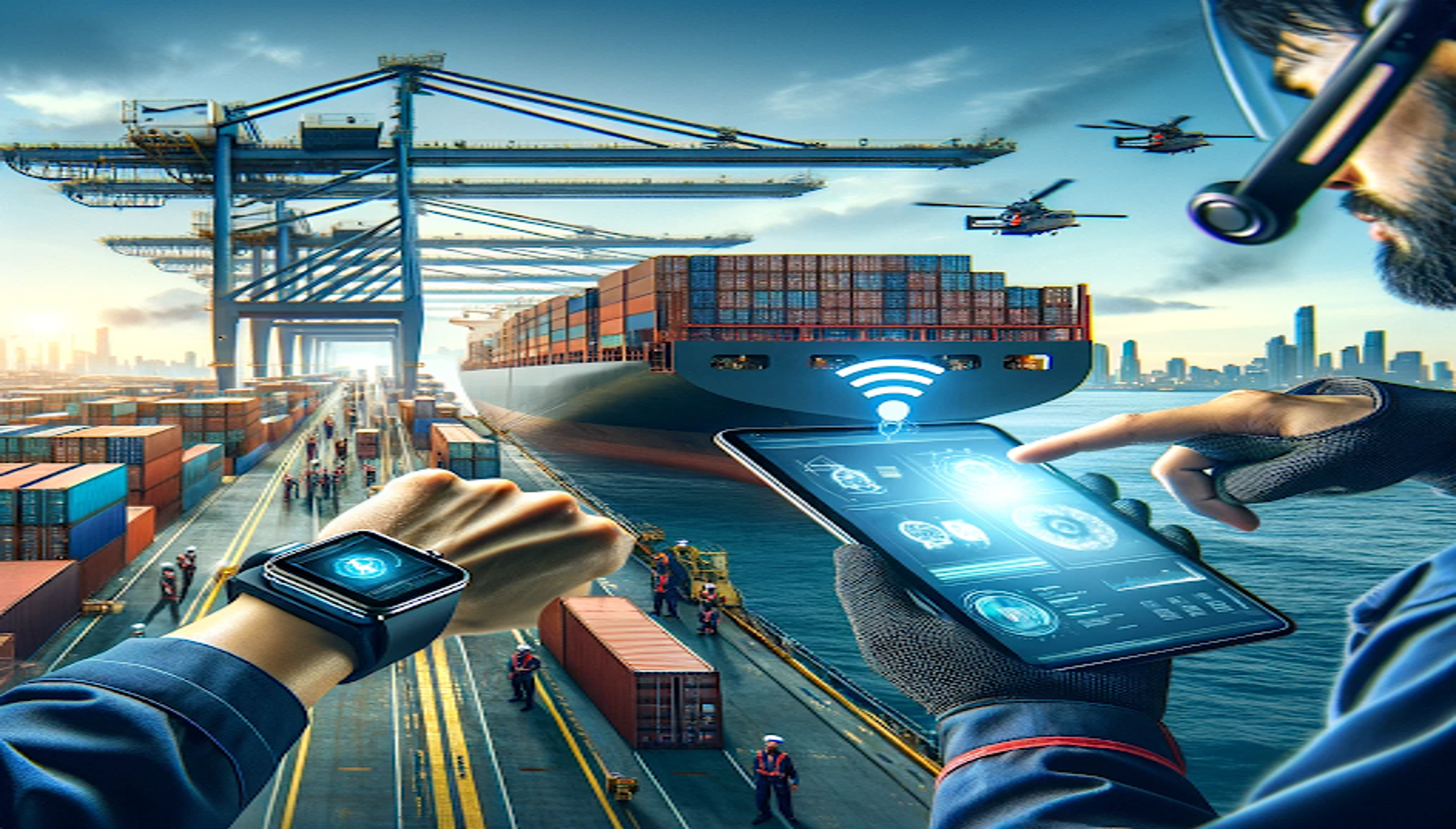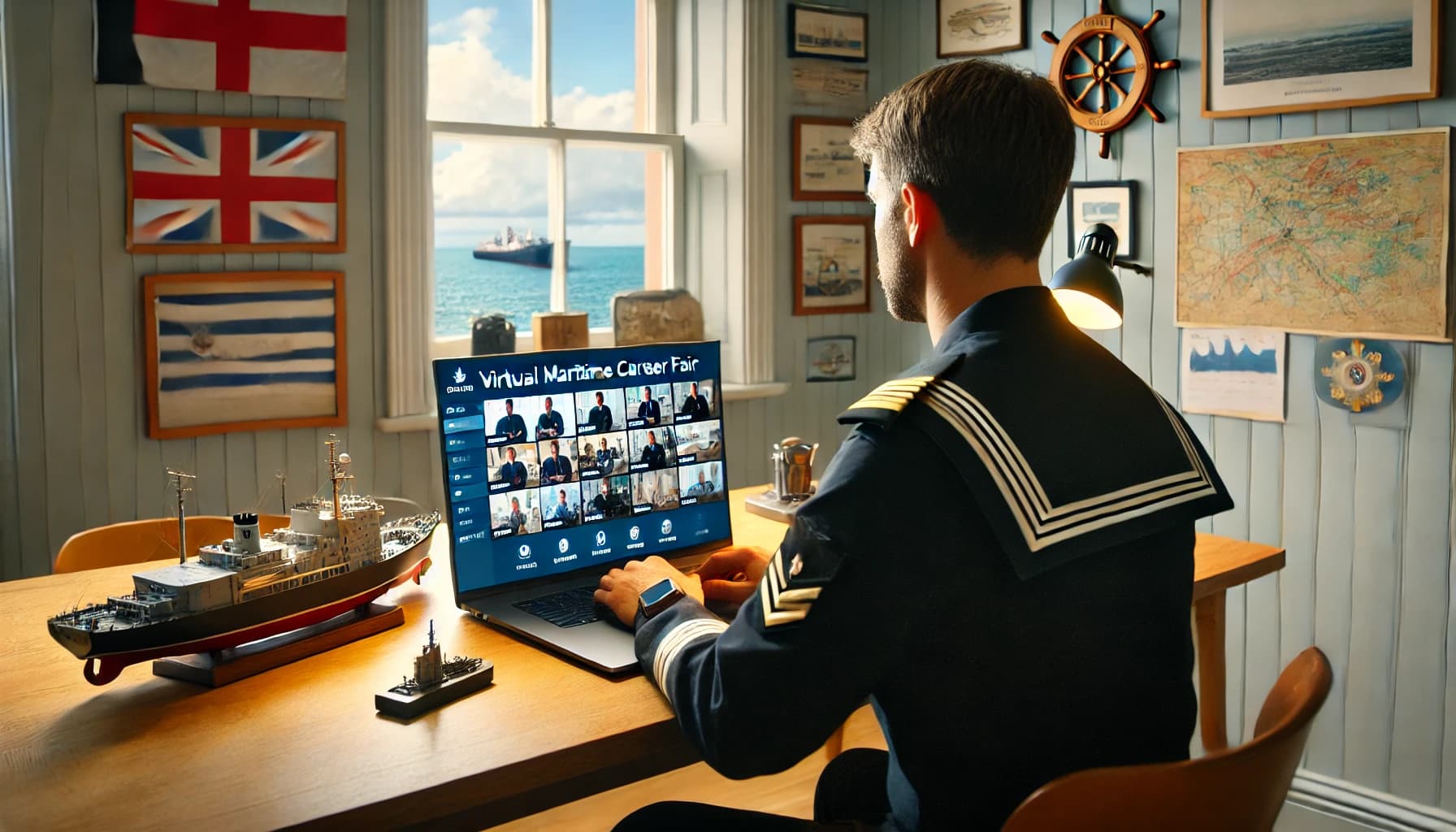How Does Smart Technology Help the Maritime Industry?
May 27, 2025 · 7 mins read ·
Maritime Industry
The maritime industry has long been a cornerstone of global trade, but it is now undergoing a major transformation thanks to smart technology. From machine learning to smart devices, innovative solutions are making shipping operations more efficient, sustainable, and safer than ever before.
As ports evolve into smart cities with interconnected systems and connectivity devices, the role of technology in maritime logistics is only set to grow.
With this in mind, let’s explore how smart technology is shaping the future of the maritime sector.
Key Elements of Smart Technology in Maritime
Smart technology in the maritime industry primarily involves:
| Technology | Function | Benefits |
| Internet of Things (IoT) | Uses connectivity devices to link sensors, chips, and software. | Remote monitoring, energy conservation, enhanced automation. |
| Autonomous Technology | Software-driven decision-making. | Reduced manual operation, improved navigation safety. |
| Data Analytics | Collects and processes large-scale data. | Performance optimization, predictive maintenance |
Applications of Smart Technology in the Maritime Industry
As the maritime industry becomes increasingly digitized, smart technology is reshaping various aspects of ship operations. From optimizing cargo management to enhancing navigation, these innovations are making shipping more efficient, cost-effective, and environmentally friendly. Below, we explore some of the most impactful applications of smart technology at sea.
1. IoT in Vessel Management
The Internet of Things (IoT) is revolutionizing the way ships are monitored and controlled. By connecting onboard systems with internet connectivity, vessel operators can:
- Remotely control cabin utilities (lights, doors, air conditioning) via smart devices.
- Manage hatch doors, bays, bulkhead systems, and hydraulics with greater efficiency.
- Improve emergency response with real-time alerts and automated safety measures.
This level of automation reduces energy consumption and enhances overall ship efficiency, making operations smoother and more cost-effective.
2. Digital Cargo and Bay Optimization
Maritime logistics is a complex operation that involves the precise arrangement of cargo to ensure stability and timely delivery. Machine learning plays a crucial role in digital cargo optimization by:
- Prioritizing high-value, time-sensitive cargo.
- Optimizing container placement based on size, weight, and destination.
- Preventing damage and maintaining vessel balance.
These automated solutions streamline port operations, making global shipping networks more reliable and effective.
3. Integrated Control Systems
Modern ships are equipped with numerous complex systems, from propulsion to navigation. Integrated control systems help consolidate these components into a centralized platform, allowing operators to:
- Monitor real-time ship performance.
- Detect mechanical issues before they escalate.
- Optimize fuel efficiency and ensure safe navigation.
By leveraging smart technology, maritime companies can reduce downtime and enhance safety across all voyages.
4. Real-Time Route Optimization
Traditional shipping routes are planned well in advance, but unexpected weather conditions, port congestion, and security threats can impact schedules. Real-time route optimization uses data from multiple sources to:
- Adjust routes dynamically based on port traffic, weather patterns, and piracy alerts.
- Reduce fuel consumption and emissions.
- Ensure timely deliveries and minimize risks.
By harnessing internet connectivity, ships can receive updated navigation data, improving their ability to respond to external challenges.
5. Large-Scale Data Analysis
With thousands of ships operating globally, collecting and analyzing maritime data is essential. Big data analytics helps optimize operations by:
- Processing cargo types, weights, and destinations.
- Monitoring ship stability, fuel efficiency, and maintenance schedules.
- Identifying inefficiencies to improve long-term performance.
The insights derived from these analytics help shipping companies make informed decisions, reducing costs and improving service reliability.
Emerging Technologies
Beyond current implementations, the maritime industry is also embracing cutting-edge innovations that promise to redefine the future of shipping. These emerging technologies, including blockchain, augmented reality, and robotics, are enhancing security, efficiency, and sustainability in ways previously unimaginable. Let’s take a closer look at how these advancements are shaping the next wave of maritime evolution.
1. Blockchain for Secure Transactions
As global trade increases, so does the need for secure and transparent transactions. Blockchain technology provides:
- A tamper-proof system for shipping records and payments.
- Reduced transaction costs and improved supply chain security.
- Faster and more efficient processing of maritime contracts.
With blockchain, shipping companies can eliminate paperwork inefficiencies and enhance trust in global trade.
2. Augmented Reality (AR) for Training and Maintenance
Training seafarers has traditionally relied on hands-on experience, but augmented reality (AR) is changing that. AR allows:
- Immersive training simulations for ship navigation and equipment operation.
- Remote diagnostics and maintenance through AR wearables.
- Enhanced ship design visualization to identify potential flaws before construction.
By integrating AR into maritime education, crews can gain practical experience in a safe and controlled environment.
3. Smart Propulsion Systems
Fuel efficiency is a top priority in maritime operations, and smart propulsion systems are paving the way for more sustainable solutions. These systems:
- Use AI to optimize speed, pitch, and fuel consumption.
- Keep marine diesel engines operating within optimal efficiency ranges.
- Reduce emissions and lower operational costs.
With regulatory bodies pushing for greener shipping practices, smart propulsion systems are becoming an industry standard.
4. Robotics, Drones, and 3D Printing
Automation is playing an increasingly important role in maritime operations. Some of the key advancements include:
- Robots: Conducting hull inspections, underwater repairs, and security monitoring.
- Drones: Assisting in cargo delivery, surveillance, and port inspections.
- 3D Printing: Producing spare parts on demand, reducing supply chain delays.
These technologies not only improve efficiency but also enhance safety by minimizing human exposure to hazardous tasks.
The Future of Smart Technology in Maritime
The adoption of smart technology in the maritime industry is not just a trend—it’s a necessity. As global shipping continues to evolve, connectivity devices, smart cities, and AI-powered solutions will play an even bigger role in shaping the industry.
At Martide, we help maritime professionals navigate these technological advancements by connecting them with cutting-edge career opportunities. Whether you’re looking for a role in smart ship management or traditional seafaring positions, our platform can help you take the next step.
Sign up via our website or mobile app to explore the latest job openings in the maritime sector. Stay ahead of the curve and embrace the future of smart shipping!
You can download the app from Google Play for Android and from the Apple Store for iPhones and iPads.
This blog post was originally published on December 19th 2022 and rewritten and updated on May 27th 2025


Gavin Hirst
Gavin is a contributing writer to the Martide blog who covers topics ranging from life at sea to maritime crew management software. A native Brit who is now based in Auckland, NZ, Gavin is also an SEO expert and partner in a successful digital marketing agency that has offices in New Zealand and the United Kingdom.
New Zealand

is the only site for maritime jobs



